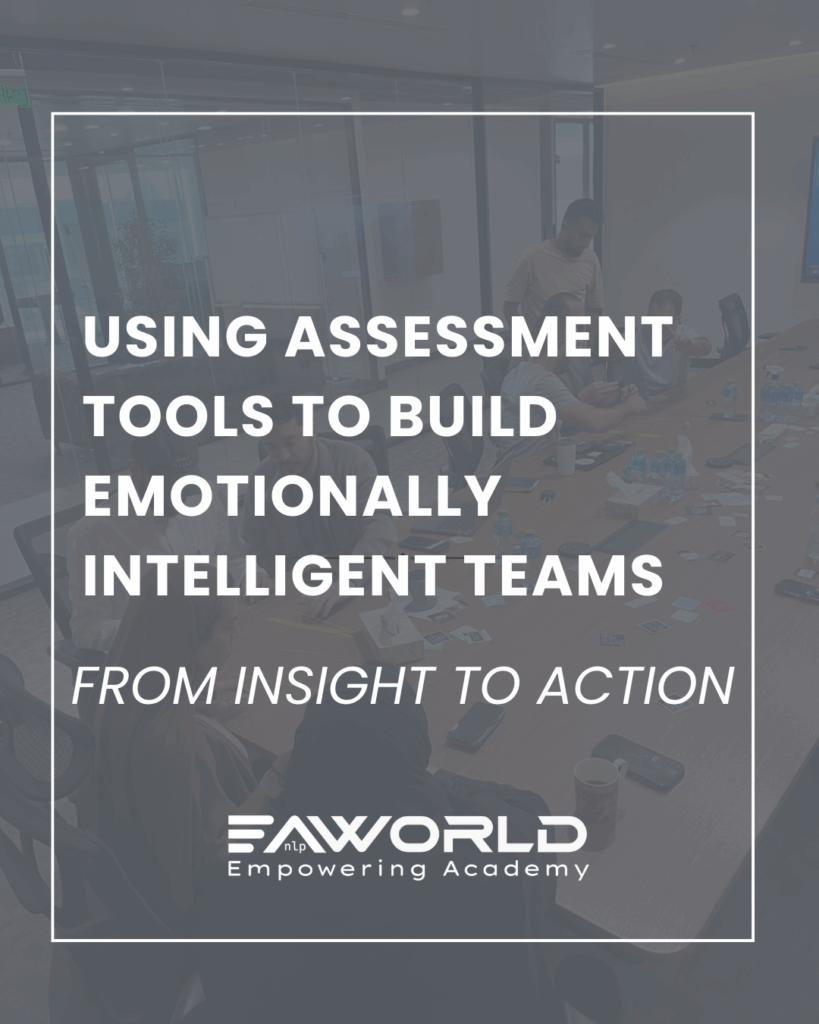
Emotional intelligence (EQ) has become a key determinant of team success. Companies that prioritize EQ in their teams experience higher levels of collaboration, resilience, and productivity. But cultivating emotionally intelligent teams doesn't happen by chance. It requires intentional strategies—and among the most powerful of these are psychological and behavioral assessment tools. From the Myers-Briggs Type Indicator (MBTI) to EQ-i 2.0, the right tools can move organizations from insight to action.
The Importance of Emotional Intelligence in the Workplace
Emotional intelligence goes beyond soft skills; it’s a core business competency. Teams with high EQ communicate more effectively, navigate conflict constructively, and respond to pressure with composure. For HR leaders, team managers, and organizational consultants, building emotionally intelligent teams isn’t just a developmental objective—it’s a strategic imperative for long-term success.
Companies that embed emotional intelligence into their organizational DNA benefit from improved engagement, lower turnover, and greater employee satisfaction. In environments where adaptability and collaboration are essential, emotionally intelligent teams become an asset that drives innovation and sustained performance.
Why Assessment Tools Matter in Developing EQ
Assessment tools bridge the gap between subjective interpretation and objective insight. They offer structured, validated frameworks for understanding personality, emotional tendencies, behavioral patterns, and interpersonal strengths. Tools like MBTI, EQ-i 2.0, DISC, and StrengthsFinder help organizations:
- Identify team dynamics that influence performance and morale
- Customize coaching and training to individual and team needs
- Improve communication by highlighting different personality styles
- Design leadership programs based on real developmental data
When assessments are integrated into ongoing talent development strategies, they act as catalysts for emotional intelligence. Teams become more aware of their behaviors, motivations, and blind spots—allowing them to work together with greater empathy and alignment.
From Awareness to Application: Turning Results into Action
The true power of assessment tools lies in how the insights are applied. This begins with facilitated feedback sessions where team members understand their results in context. Through group workshops, coaching interventions, and cross-functional collaboration exercises, teams start translating awareness into action.
For example, if an MBTI workshop reveals a team with predominantly introverted and thinking types, managers can encourage more structured communication forums that allow for thoughtful contribution. If an EQ-i 2.0 assessment reveals low stress tolerance, leadership can prioritize resilience-building practices such as mindfulness training or workload rebalancing.
This intentional application transforms assessment tools from one-time diagnostics into sustainable performance drivers.
Enhancing Team Culture Through Assessments
Emotionally intelligent teams are the foundation of healthy workplace cultures. When individuals are aware of their triggers, communication preferences, and emotional needs, they contribute more openly and constructively to the group. Assessment tools provide a shared language that facilitates deeper understanding and stronger interpersonal connections.
For instance, using MBTI across an organization can improve cross-departmental collaboration by helping teams anticipate and respect differences in how colleagues process information or approach deadlines. EQ assessments can inform empathy-building initiatives that reduce workplace conflict and increase cohesion.
Leadership’s Role in Facilitating EQ through Assessments
Leaders play a pivotal role in modeling and promoting emotional intelligence. By participating in assessments themselves and using the insights to guide their management style, they create a top-down culture of self-awareness and continuous growth.
Assessment-based coaching programs can help leaders:
- Identify how their personality impacts team dynamics
- Understand the emotional needs of their direct reports
- Adapt communication and feedback to individual styles
The ripple effect is powerful. When leaders embody emotional intelligence, teams are more likely to follow suit.
EANLPWorld’s Approach: Strategic Use of Assessment Tools for EQ Development
At EANLPWorld, we specialize in converting data into development. Our approach to assessment tools is grounded in applied psychology and coaching excellence. We don’t just administer tests—we design transformation experiences.
Whether through MBTI, EQ-i 2.0, or customized team diagnostic tools, our certified consultants guide organizations in leveraging assessments to:
- Build emotionally intelligent leadership pipelines
- Facilitate team-building based on real behavioral data
- Integrate EQ into every aspect of culture and performance
By aligning insight with strategy, we help organizations nurture teams that are not just technically competent—but emotionally agile, empathetic, and resilient.
Building emotionally intelligent teams is a long-term investment, and assessment tools are the foundation. They offer measurable, meaningful insights that fuel intentional growth. When used correctly, these tools don’t just inform—they transform. They move teams from insight to action, from self-awareness to collective success.
As your organization navigates rapid change and increased complexity, let emotional intelligence be your competitive advantage. With the right assessment tools and the right partner—like EANLPWorld—you can build teams that thrive on connection, trust, and performance.
Ready to develop emotionally intelligent teams that drive real business results? Discover how our assessment-based solutions can transform your workplace.

